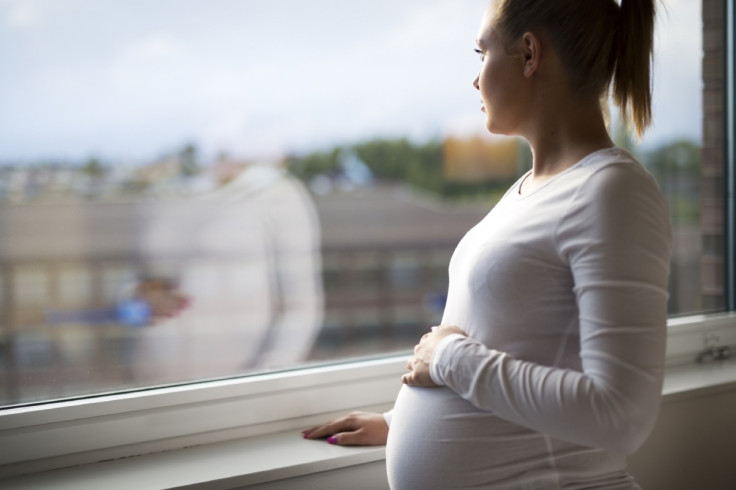Can stress really affect your chances of getting pregnant?
A new study has re-started the debate about whether stress can affect chances to get pregnant.

It has long been suspected that stress can negatively impact women's chances of getting pregnant, but evidence of this remains elusive. This is in part due to the fact scientists have long struggled to understand the direction of the relationship between stress and fertility – that is whether more stress means a lower probability of conceiving or whether it is failure to conceive that increases stress.
A number of studies focuses on couples diagnosed with fertility problems because they are likely to be stressed by their diagnosis – some try to assess the impact of stress on these couples' treatments and pregnancy outcomes. However, less has been done to investigate what role, if any, stress has for couples trying to conceive "naturally". In their cases, teasing out the extent to which stress is responsible for delays in getting pregnant often proves to be an impossible task, because so many other factors can also come into play.
A new research, published in September 2016 in the journal Annals of Epidemiology has re-ignited the debate about the relationship between stress and fertility.
What the recent study showed
Looking at women with normal reproductive cycles and no diagnosis of infertility to date, who were reporting higher levels of stress during their ovulatory window than other women, the study finds they were 45% less likely to conceive.
In total the cases of 400 women aged 40 or younger were analysed. They were asked to keep a diary to record their daily stress levels, measured on a scale from one to four. The women also had to include information regarding menstruation, intercourse, contraception use and consumption of alcohol, coffee or tobacco. The participants were followed for up to 20 menstrual cycles, or until pregnancy. In conclusion, high levels of stress near the time of ovulation were positively correlated with reduced chances of conceiving, after adjusting for other factors.
"These findings add more evidence to a very limited body of research investigating whether perceived stress can affect fertility," lead author Kira Taylor from the University of Louisville, commented.
But again in this study, it is difficult to identify whether stress is a consequence of not getting pregnant as months go by, or if it is a cause of infertility. Additionally, the women who failed to get pregnant at the end of the trial were not tested for infertility to see if this was likely to be the problem.
How is stress a cause?
Beyond all the uncertainty regarding stress and fertility, one thing is sure: reproductive health experts know that under extreme, traumatic circumstances, stress is likely to have important, visible physiological consequences – such as disruptions to the reproductive cycle. The problem is that the consequences of stress on the body are much harder to see in less extreme situations.
"Women who are experiencing bereavement may sometimes see their periods stop altogether for a while – this is tangible evidence that extreme stress can in some way affect fertility. It may be a protection mechanism established by the body that recognises this time of stress is not a good time to have a baby", Adam Balen, Professor of reproductive medicine and Chair of the British Fertility Society, told IBTimes UK. "However, for women who have normal cycles, it is uncertain whether stress really does have an impact and as health professional, we have to reassure them that stress is unlikely to affect their chances of conception".

Another finding from the recent study demonstrates the complex relationship between stress, hormones, fertility. It was shown that women who did conceive experienced an increase in stress levels at the end of the month in which they became pregnant. One of the hypothesis is that increased stress was the result of changes in hormone levels caused by pregnancy itself. So in this context, high stress is a sign of the woman being fecund.
The message to parents
Even if studies are not able to measure the full extent of how stress impacts fertility, they still provide reproductive health experts with an interesting insight, and can lead to an improvement of their practice.
"The bottom line is that we have to be less clinical and more holistic in our approach to infertility, we have to consider that people might experience stress at the time of conceiving a child and think about what we can say to help them", Balen says.
In fact, there are a number of messages that they could pass on to couples who wish to conceive, to limit the stress they might feel about getting pregnant. One of them is that it can take time, even if the couple has no fertility problems. When discontinuing contraception, a few months can go by before the woman does become pregnant.
"If a woman has a normal cycle with regular periods, they will have a regular ovulation. I even tend to say they don't necessarily need ovulation testing kits to check when they ovulate. In some cases, this can even add to the stress. Regular sexual intercourse – not just the day of ovulation – is the best way to get pregnant", Balen adds.
Women who have a gynaecologic history of pelvic infections, sexually transmitted diseases, problems at puberty or irregular periods are encouraged to discuss with a fertility specialist who will address all their concerns – on a clinical level as well as on a more psychological one, discussing the stress they might feel.
© Copyright IBTimes 2025. All rights reserved.






















